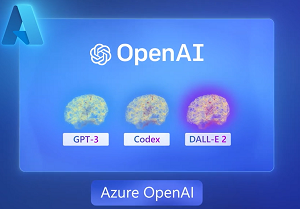News
ChatGPT in Preview on Azure OpenAI Service
ChatGPT, the hottest tech in the industry, is now available in the Azure OpenAI Service as a preview, Microsoft announced today, March 9.
However, if you haven't yet been granted access to the cloud service, you have to first apply and be accepted. Initial access is being granted to only Microsoft managed customers and partners.
Those who have been accepted can start using ChatGPT as of March 9. On March 13, ChatGPT usage billing will begin at a price of $0.002/1k tokens.
"Since ChatGPT was introduced late last year, we've seen a variety of scenarios it can be used for, such as summarizing content, generating suggested email copy, and even helping with software programming questions," said Microsoft exec Eric Boyd in a March 9 blog post. "Now with ChatGPT in preview in Azure OpenAI Service, developers can integrate custom AI-powered experiences directly into their own applications, including enhancing existing bots to handle unexpected questions, recapping call center conversations to enable faster customer support resolutions, creating new ad copy with personalized offers, automating claims processing, and more."
 [Click on image for larger view.] Azure OpenAI (source: Microsoft).
[Click on image for larger view.] Azure OpenAI (source: Microsoft).
Azure OpenAI Service became generally available in January, allowing businesses to apply to use some of the most advanced AI models in the world from Microsoft partner OpenAI, such as Codex (software development), DALL•E 2 (image generation) and GPT-3.5, the souped-up large language model (LLM) that powers ChatGPT.
In comparing the Azure service to regular OpenAI access, Microsoft said the cloud offering provides security and other enterprise features, with the Azure team co-developing APIs with OpenAI.
To get access to the service, requesters will need to check off 25 separate items and provide an organizational Azure subscription ID, company email address (gmail.com, hotmail.com, outlook.com and the like "will be DENIED"), company web site and so on.
A FAQ explains Microsoft's limited access policy: "The early-stage nature of the technology may result in unexpected and non-ideal behaviors. We limit access to the service to promote responsible use and limit the impact of high-risk use cases."
About the Author
David Ramel is an editor and writer at Converge 360.